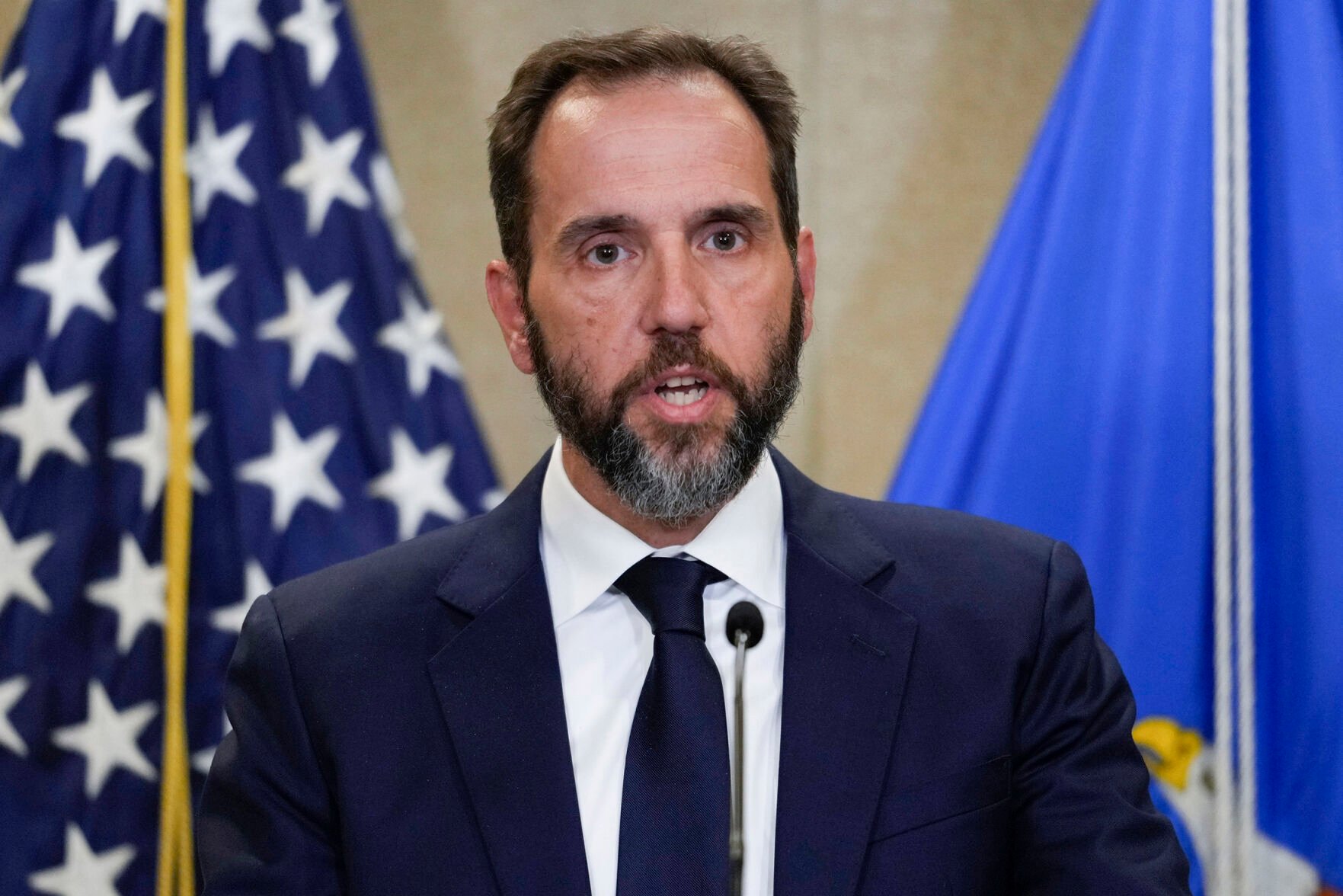Just days before President-elect Donald Trump is set to return to office on January 20, Special Counsel Jack Smith has released a scathing report detailing Trump’s “unprecedented criminal effort” to overturn the 2020 election results. The report asserts that Trump’s actions were rooted in deceit and stands by the decision to bring criminal charges, which were dismissed due to his re-election.
Special counsel report details Trump’s efforts to overturn 2020 election results

Key Takeaways:
- Special Counsel’s Report Released: Jack Smith published a detailed report on Trump’s efforts to overturn the 2020 election.
- Accusations of Unprecedented Efforts: Trump is accused of an “unprecedented criminal effort” to retain power.
- Charges Dismissed Due to Re-election: Legal proceedings were halted because DOJ policy prohibits prosecuting a sitting president.
- Supreme Court’s Ruling on Immunity: A landmark decision granted former presidents sweeping immunity from prosecution for official acts.
- Trump’s Public Denial: Trump responded by declaring his innocence and highlighting his electoral victory.
Special Counsel Releases Scathing Report
Special Counsel Jack Smith announced the release of his much-anticipated report detailing President-elect Donald Trump’s efforts to overturn the 2020 election results. “While we were not able to bring the cases we charged to trial, I believe the fact that our team stood up for the rule of law matters,” Smith wrote in a letter to Attorney General Merrick Garland attached to the report.
Allegations of an Unprecedented Criminal Effort
The report accuses Trump of an “unprecedented criminal effort to overturn the legitimate results of the election in order to retain power.” It outlines how Trump allegedly used “knowingly false claims of election fraud” as a weapon against the foundational democratic processes of the United States.
Legal Hurdles and Dismissal of Charges
Trump was indicted in August 2023 on charges related to undermining the election. However, the case faced delays due to appeals and was ultimately dismissed. A conservative-majority Supreme Court held that former presidents enjoy sweeping immunity from criminal prosecution for official acts, significantly narrowing the scope of the indictment. Furthermore, longstanding Department of Justice policy prohibits the prosecution of a sitting president.
“The Department’s view that the Constitution prohibits the continued indictment and prosecution of a President is categorical and does not turn on the gravity of the crimes charged,” the report states. “Indeed, but for Mr. Trump’s election and imminent return to the Presidency, the Office assessed that the admissible evidence was sufficient to obtain and sustain a conviction at trial.”
Trump’s Response on Social Media
In the wake of the report’s release, Trump took to his Truth Social platform to proclaim his innocence. He labeled Smith “a lamebrain prosecutor who was unable to get his case tried before the Election,” adding emphatically, “THE VOTERS HAVE SPOKEN!!!”
Obstacles Faced During the Investigation
Smith’s report details significant challenges encountered during the investigation. Trump’s assertions of executive privilege attempted to block witnesses from providing evidence, forcing prosecutors into sealed court battles. Another major hurdle was Trump’s “ability and willingness to use his influence and following on social media to target witnesses, courts, prosecutors,” leading to efforts to seek a gag order to protect potential witnesses from harassment.
“Mr. Trump’s resort to intimidation and harassment during the investigation was not new,” Smith wrote. He cited Trump’s pattern of using social media “to publicly attack and seek to influence state and federal officials, judges, and election workers who refused to support false claims that the election had been stolen.”
Details of the Alleged Schemes
The report provides an unsparing account of the strategies allegedly employed by Trump. These include attempts to force the Justice Department to advance his personal interests, participation in a scheme to enlist fake electors in battleground states won by Joe Biden, and directing “an angry mob to the United States Capitol to obstruct the congressional certification of the presidential election and then leverage rioters’ violence to further delay it.”
It also documents the fallout between Trump and then-Vice President Mike Pence. On January 6, 2021, just before delivering a speech at the Ellipse, Trump called Pence, who informed him he would not refuse to certify the electoral count. “Mr. Trump expressed anger at him. He then directed staffers to re-insert into his planned Ellipse speech some language that he had drafted earlier targeting Mr. Pence,” the report states.
The Final Justice Department Chronicle
With prosecution now foreclosed due to Trump’s imminent return to the White House, the report is expected to be the final Justice Department chronicle of this chapter in American history. It complements already released indictments and reports, providing a comprehensive account of actions that “threatened to disrupt the peaceful transfer of power, a bedrock of democracy for centuries.”
Looking Ahead
As Trump prepares to assume office on January 20, the release of Smith’s report casts a long shadow over the incoming administration. While the legal avenues for prosecution have been closed, the detailed account stands as a stark reminder of the challenges faced by democratic institutions in recent years.











